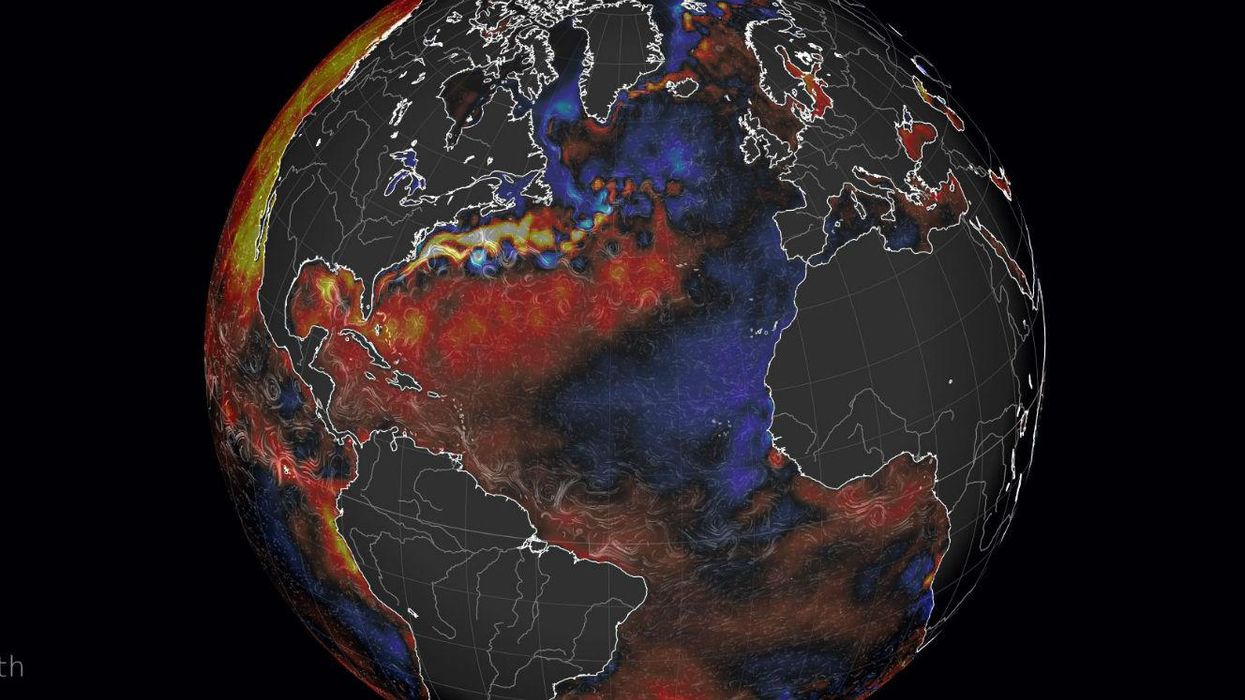News
Evan Bartlett
Mar 25, 2015

This map shows the current sea surface temperature compared to what is expected for this time of year. Red = warmer, blue = colder
The Gulf Stream, which helps to prevent Britain from freezing over in winter, is now slowing down faster than at any time in the last millennium.
A new study has revealed that the high levels of cold freshwater flowing into the Atlantic from the melting Greenland ice cap have slowed down the "engine" that drives the stream northwards.
As the Independent's science editor Steve Connor explains, because freshwater is lighter than saltwater, it tends to float on the surface of the ocean and has therefore affected the usual process which brings warm ocean water from the equator into the Atlantic's northern reaches.
In fact, according to the study, published in the journal Nature Climate Change, the North Atlantic is practically the only region on the planet to have witnessed an average cooling in temperature.
This map shows the change in average temperature between 1900 and 2013 (Picture: Stefan Rahmstorf)While 2014 was the hottest year on Earth since records began, the region in the sub-polar Atlantic witnessed its coldest ever.
As Mashable's science editor Andrew Freeman points out, the subsequent slowing down of the Gulf Stream could be a "tipping point" for the Earth - "which, once set into motion, cannot be stopped".
He points out that the Intergovernmental Panel on Climate Change (IPCC) estimates there is a 10 per cent chance of the Gulf Stream completely shutting down by 2100.
This could have severe consequences for north-western Europe - including harsher winters and drought-prone summers - and could cause a knock-on effect on ocean currents the world over.
Meanwhile, Michael Mann of Pennsylvania State University, a co-author of the study, warns that current estimates of the possible changes to the Gulf Stream may not go far enough.
“Common climate models are underestimating the change we’re facing, either because the Atlantic overturning is too stable in the models or because they don’t properly account for Greenland ice melt, or both,” he explains.
More: Ukip MEP draws bizarre comparison between climate change and solar eclipse
More: Who knows more about climate change, Republican senators or children?
More: How sure are we that humans cause climate change? 99.999 per cent sure
Top 100
The Conversation (0)












